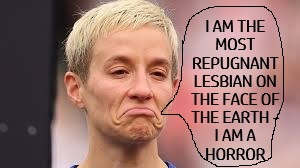
Robert De Niro, once hailed as a transformative force in American cinema, has devolved into a caricature of his own making—a volcanic eruption of unearned rage, cultural posturing, and phoned-in performances that betray a man desperate for relevance.
At 82, the two-time Oscar winner embodies the very stereotypes he peddles: a faux-tough guy whose tough-guy schtick now targets Donald Trump with the intellectual depth of a bad sequel. De Niro’s hatred for the former president isn’t rooted in policy nuance or principled dissent; it’s the reflexive snarl of an ignoramus who mistakes movie bravado for real-world insight. He calls Trump a “clown,”
Yet, where’s the substance? De Niro’s barbs, spat at everything from Tony Awards to Biden campaign pressers, boil down to playground taunts: “Fuck Trump.” How does that in any way engage anyone? What does that express?
It’s as if his decades of playing mobsters have convinced him that profanity equals profundity. Trump fires back by dubbing him a “low IQ individual” punch-drunk from too many on-screen haymakers. Trump should also mention that De Niro, already a shrimp, has to wear huge platform shoes to create an on-screen image that he’s far taller than reality.

De Niro’s Trump fixation isn’t principled opposition; it’s the last gasp of a fading star who, lacking fresh scripts, recasts himself as a real-life wise guy. He thinks he can “talk tough” like his characters—growling warnings that Trump will “never leave” the White House. In reality, if De Niro even thinks this deeply, his true fear is that Trump is so beloved by the majority of Americans that he might be re-elected for a 3rd term via a change to the Constitutional amendment that, for now, prevents it.
This delusion, which could very well be a self-fulfilling prophecy, stems from De Niro’s career-long flirtation with one-dimensionality, a habit he’s honed by tacitly mocking Italian Americans through endless iterations of the same thuggish archetype.
Born in 1943 to abstract painter Robert De Niro Sr. and poet Virginia Admiral, De Niro’s heritage is a mongrel mix: his father was half Irish (from his mother Helen O’Reilly’s side) and half Italian (paternal grandfather Henry De Niro, son of immigrants from Ferrazzano in Molise), while his mother drew from Dutch, English, French, and German roots. He holds dual U.S.-Italian citizenship, granted in 2006 despite protests from Italian-American groups who accused him of tarnishing their image with gangster roles.
Yet, for all his Molise pride—visiting relatives in Campobasso and accepting honorary citizenship from Ferrazzano in 2004, De Niro’s “Italian-ness” feels appropriated, a convenient prop for roles that reduce an entire ethnicity to snarling sociopaths.
Consider his filmography: a parade of wise guys from The Godfather Part II (1974, Oscar-winning as young Vito Corleone) to Goodfellas (1990) as Jimmy Conway, Casino (1995) as Sam “Ace” Rothstein, and The Irishman (2019) as Frank Sheeran. These aren’t nuanced portraits; they’re fetishized fantasies that equate Italian heritage with criminality.
The Order Sons and Daughters of Italy in America (OSIA) slammed him in 2004, arguing his “distorted and unbalanced portrayal of people of Italian heritage” damaged reputations worldwide, even objecting to his Shark Tale voice role as a “classic godfather figure” shark that would “introduce unflattering stereotypes to millions of children.” De Niro dismissed it, insisting his characters are “real” and thus fair game.
Real to whom? To Italian Americans, it’s a one-note clown show that perpetuates the buffoonish mobster trope, as critiqued by the Italic Institute of America: “No other actor has done more… to perpetuate Italian mobster and buffoon stereotypes.”
Even in non-Italian roles, De Niro’s gravelly accent and squint bleed through—he’s always “Italian” in essence, a walking stereotype factory.
Nowhere is this more evident than in Casino, where De Niro’s Ace Rothstein—a brilliant Jewish oddsmaker based on Frank Rosenthal—emerges as the film’s weakest link despite being the lead. Surrounded by volcanic personalities like Joe Pesci’s feral Nicky Santoro and Sharon Stone’s self-destructive Ginger McKenna, Ace is meant to be the cerebral anchor: a genius who runs the Tangiers Casino with mathematical precision, only to crumble under personal frailties like vanity and a doomed marriage.
But De Niro plays him like just another Italian goombah—stoic, suit-obsessed, quick to menace—stripping away any ethnic distinction. Reviewers noted it: “De Niro plays him like an Italian mob guy, not like a Jewish mathematical genius.”
Echoing his Goodfellas Conway (inspired by half-Irish Henry Hill). Ace’s “weakness” isn’t dramatic irony; it’s De Niro’s inability to transcend his go-to persona. The love story with Stone, often called the film’s Achilles’ heel, a vulnerability that exposes De Niro’s own creative brittleness. He’s the oddsmaker who can’t beat the house of his own clichés.
Today, that brittleness has metastasized. De Niro, once a method-acting titan who gained 60 pounds for Raging Bull, now phones in roles that scream financial desperation. Critics savage his recent output as “passionless” and “scattershot,”
An example would be Alto Knights (2025)—where he dual-plays rival mob bosses Vito Genovese and Frank Costello—bombed as “boring, sloppy, meandering” and a “derivative” retread that fails to justify his gimmicky casting. It’s Casino redux: two De Niros snarling at each other, but without Scorsese’s spark. Earlier flops like Dirty Grandpa (2016), The War with Grandpa (2020), and the Fockers trilogy (Nepo-baby Ben Stiller’s uncreative and 5th level shtick in filmmaking history) draw fire for squandering his gravitas on “lightweight” fare where he “walks through roles, just collecting the money.” Financiers whisper he’ll “be in anything,”
A far cry from his ’70s heyday. With seven kids from multiple marriages and a net worth buoyed by Nobu restaurants, does he need the cash? Or is it inertia, the buffoon clinging to spotlights dimmed by time?
De Niro’s irrelevance isn’t just professional; it’s personal. His Trump rants—predicting wars for a third term, and the unhinged volatility he once channeled so brilliantly. But, without a script, it’s stupidity unmasked: an uneducated vulgarian (he dropped out of high school
Vapid of empathy, erupting over a man whose brashness he apes without self-awareness. Italian Americans deserved better than his mobster mockery; America deserves better than his clownish crusade. De Niro, just an over-hyped actor turned weakling lead, has bet against his own legacy—and lost.



